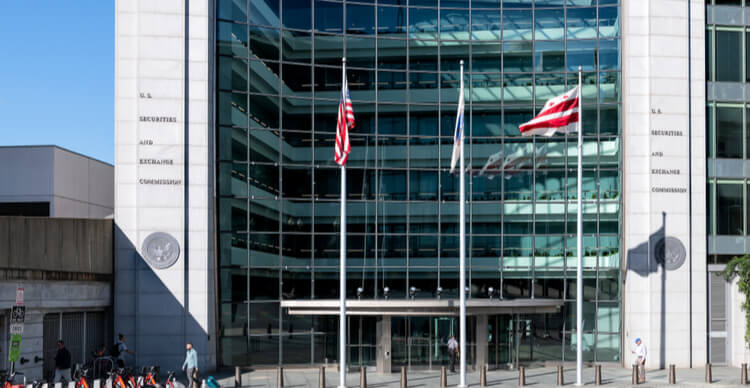Your Family Will Thank You for Getting This Political History
Political history is a fascinating and crucial field that examines the development of political systems, ideologies, movements, and influential figures throughout time. Understanding political history provides us with valuable insights into the formation and evolution of governments, policies, and the social structures that shape our lives. By delving into the past, we gain a deeper understanding of the present and can make informed decisions that impact our future.
Understanding the Foundations: Early Political Systems
Early political systems were diverse and varied across different regions and time periods. They laid the foundations for the development of more complex political structures and governance models that exist today. Here are some key early political systems:
Ancient Mesopotamia: One of the earliest known civilizations, Mesopotamia developed city-states with monarchies. The ruler, often considered a divine figure, held absolute power and governed through a hierarchy of officials.
Ancient Egypt: Ancient Egypt had a centralized government ruled by pharaohs. The pharaoh was not only a political leader but also considered a divine figure. Bureaucratic officials and priests assisted the pharaoh in governing the kingdom.
Ancient Greece: Ancient Greece experienced several different political systems, including monarchies, oligarchies, and tyrannies. However, the most notable contribution of ancient Greece was the development of democracy in Athens. In Athenian democracy, male citizens participated in decision-making through voting and serving in various political offices.
Ancient India: Ancient India saw the emergence of several early political systems, such as monarchies and republics. The republics, known as Mahajanapadas, were self-governing states with elected councils and assemblies.
Roman Republic: The Roman Republic emerged after the overthrow of the monarchy in ancient Rome. It featured a complex system of checks and balances, with elected officials and a Senate. However, power was mostly concentrated among the aristocratic class.
Chinese Dynasties: Ancient China witnessed a long history of dynastic rule, starting with the Xia Dynasty. The political system varied across dynasties, but they generally involved centralized power under an emperor, supported by a bureaucracy of officials.
Mayan Civilization: The Mayan civilization in Mesoamerica had a hierarchical political system. City-states were ruled by a king who governed with the assistance of nobles and priests. The society also had a system of tribute and taxation.
The Evolution of Political Ideologies
The evolution of political ideologies has been a dynamic and complex process throughout history. As societies developed and transformed, different ideas and beliefs emerged, shaping the way people perceived and organized their political systems. Here is a general overview of the evolution of political ideologies:
Classical Liberalism: Emerging in the 17th and 18th centuries, classical liberalism emphasized individual rights, limited government, and free markets. Thinkers like John Locke and Adam Smith advocated for individual liberties, property rights, and the idea that governments should be limited in their interference with personal and economic affairs.
Conservatism: In response to the French Revolution and the subsequent rise of liberalism, conservatism emerged as a political ideology that sought to preserve traditional institutions and values. Conservatives favored social stability, hierarchical structures, and gradual change rather than radical transformations.
Socialism: As industrialization progressed in the 19th century, socialism emerged as a response to the social and economic inequalities brought about by capitalism. Socialists, such as Karl Marx and Friedrich Engels, called for the collective ownership of means of production and the redistribution of wealth to ensure economic equality.
Marxism: Marxism, derived from the works of Karl Marx, developed into a distinct ideology advocating for the overthrow of the capitalist system through a proletarian revolution. Marx argued for the establishment of a classless society where the means of production are owned collectively, and the state eventually withers away.
Anarchism: Anarchism rejects centralized authority and calls for the abolition of the state. It advocates for a society based on voluntary cooperation, mutual aid, and direct democracy. Anarchist thinkers like Mikhail Bakunin and Emma Goldman promoted the idea that individuals can organize themselves without the need for hierarchical structures.
Fascism: Fascism emerged in the early 20th century and emphasized the supremacy of the nation or race, authoritarian leadership, and the rejection of liberal democracy. Fascist regimes, such as those led by Adolf Hitler and Benito Mussolini, promoted aggressive nationalism, totalitarianism, and the suppression of dissent.
Liberalism: The Rise of Individualism
Liberalism emphasizes individual freedom, limited government intervention, and the protection of civil liberties. It gained traction during the Enlightenment, advocating for democracy, free markets, and human rights.
Conservatism: Tradition and Order
Conservatism seeks to preserve established traditions, institutions, and societal structures. It values stability, hierarchy, and incremental change. Conservative movements have played a significant role in shaping political landscapes worldwide.
Socialism: Pursuit of Equality
Socialism aims to address societal inequalities through collective ownership and the redistribution of resources. It advocates for social justice, workers' rights, and welfare programs. Socialist movements have had a profound impact on various nations throughout history.
Major Political Movements and Revolutions
Throughout history, political movements and revolutions have sparked significant transformations in society and governance. Let's examine some pivotal moments:
The French Revolution: A Turning Point
The French Revolution marked a watershed moment in political history. It challenged the absolute monarchy and aristocracy, advocating for liberty, equality, and fraternity. Its ideals reverberated across Europe and inspired further movements for democratic governance.
The American Revolution: Birth of a Nation
The American Revolution resulted in the formation of the United States, becoming a beacon of freedom and democratic governance. It emphasized the protection of individual rights and laid the groundwork for modern constitutional republics.
The Russian Revolution: The Rise of Communism
The Russian Revolution brought about the establishment of the Soviet Union, the world's first socialist state. Led by Vladimir Lenin, it sought to create a classless society through the principles of Marxism-Leninism. The Russian Revolution significantly influenced global politics and fueled ideological conflicts throughout the 20th century.
Impactful Political Figures Throughout History
Numerous political figures have shaped the course of history through their leadership and ideologies. Let's explore a few notable individuals:
Winston Churchill: Leadership in Times of Crisis
Winston Churchill's steadfast leadership during World War II made him an iconic figure in political history. His resolute determination and inspiring speeches rallied the British people and their allies, ultimately leading to victory against Nazi Germany.
Nelson Mandela: Apartheid's End and Reconciliation
Nelson Mandela's fight against apartheid in South Africa and subsequent efforts towards reconciliation earned him global admiration. His commitment to justice, equality, and forgiveness showcases the transformative power of political leadership.
Mahatma Gandhi: Nonviolent Resistance
Mahatma Gandhi's advocacy for nonviolent resistance played a pivotal role in India's struggle for independence from British colonial rule. His principles of truth, nonviolence, and civil disobedience inspired civil rights movements worldwide.
The Influence of Political History on Current Events
Political history continually influences contemporary events and shapes the present geopolitical landscape. Understanding the historical context of current political issues allows us to analyze them more effectively and develop informed perspectives. It also enables us to recognize recurring patterns, avoid past mistakes, and work towards a more prosperous future.
How Political History Shapes Society
Political history leaves an indelible mark on society, influencing governance, public policy, and social structures. It helps us comprehend the complexities of power, democracy, and the dynamics between different groups within society. By studying political history, we gain insights into how societies evolve and develop a more nuanced understanding of our collective past.






 English (US) ·
English (US) ·